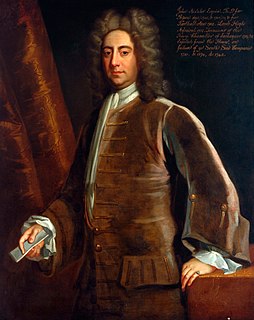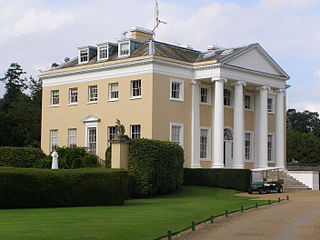
Wilfrid was an English bishop and saint. Born a Northumbrian noble, he entered religious life as a teenager and studied at Lindisfarne, at Canterbury, in Gaul, and at Rome; he returned to Northumbria in about 660, and became the abbot of a newly founded monastery at Ripon. In 664 Wilfrid acted as spokesman for the Roman position at the Synod of Whitby, and became famous for his speech advocating that the Roman method for calculating the date of Easter should be adopted. His success prompted the king's son, Alhfrith, to appoint him Bishop of Northumbria. Wilfrid chose to be consecrated in Gaul because of the lack of what he considered to be validly consecrated bishops in England at that time. During Wilfrid's absence Alhfrith seems to have led an unsuccessful revolt against his father, Oswiu, leaving a question mark over Wilfrid's appointment as bishop. Before Wilfrid's return Oswiu had appointed Ceadda in his place, resulting in Wilfrid's retirement to Ripon for a few years following his arrival back in Northumbria.

John Aislabie or Aslabie, of Studley Royal, near Ripon, Yorkshire, was a British politician who sat in the English and British House of Commons from 1695 to 1721. He was of an independent mind, and did not stick regularly to the main parties. He was Chancellor of the Exchequer at the time of the South Sea Bubble and his involvement with the Company led to his resignation and disgrace.
George Abbot may refer to:

Major Sir George Gipps was Governor of the colony of New South Wales, Australia, for eight years, between 1838 and 1846. His governorship was during a period of great change for New South Wales and Australia, as well as for New Zealand, which was administered as part of New South Wales for much of this period. Settlers at the time were not happy with his move towards responsible government, although contemporaries at the Colonial Office found him to be an able administrator.
Lynch is a surname of English and Irish origin.
Richard Pratt may refer to:
Sayer is a surname, and may refer to:
Spence is a surname. Notable persons with that surname include:
William Spencer may refer to:
Marmaduke Wyvill may refer to:
Milles is a surname. Notable people with the surname include:
Thomas Best may refer to:
George Gipps was an English apothecary, hop merchant, banker and politician who sat in the House of Commons of Great Britain between 1780 and 1796.
George Gipps (1791–1847) was the Governor of New South Wales.
Henry Plumptre Gipps was an English lawyer and Conservative Party politician who sat in the House of Commons from 1852 to 1853.
The Ripon by-election, 1925 was a parliamentary by-election held on 5 December 1925 for the British House of Commons constituency of Ripon.
Charles Egerton may refer to:
Bennet is an English language surname ; related to the medieval name Benedict, both ultimately from Latin Benedictus "blessed". Bennett is the English spelling of the Anglo-Norman name Ben[n]et. The oldest public record of the surname is dated 1208 in County Durham. §

George Gipps of Howletts, near Canterbury, Kent, was an English politician.
This page is based on this
Wikipedia article Text is available under the
CC BY-SA 4.0 license; additional terms may apply.
Images, videos and audio are available under their respective licenses.



